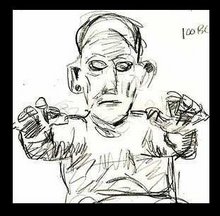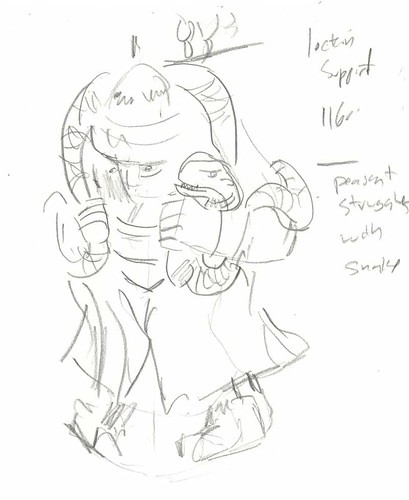 A Colony in a Nation
A Colony in a Nation by
Christopher L. Hayes
My rating:
4 of 5 stars
Good stuff. But I have to admit is seems a little rambling at times. HOWEVER, I really like the paths he takes when he rambles. The ironic observations he tosses out are well received by me, but I do wonder if more academic types might quibble with some of the comparisons, especially the Rebellious American colonists apparently quite similar to the poor and oppressed of today (See below)
Hayes takes the title from a Nixon speech and he provides some context how that administration used the idea of white fear to play with political power. But the core idea of the book transcends historical timelines, especially given his philosophical closing argument.
But officially the idea is of viewing some people, usually poor and black as part of a separate Colony and this Colony is administered by the Nation (various local and nation forces) as a colonial occupation with military style actions. The resulting oppression is justified by need to keep Order for the nation, even at the expense of Justice (the Law) for the people in the colony.
He may be more organized than I see but is seems he offers a number of explanations at random as to what motivates this oppression.
Partial explanations-
Primarily it is
white fear as the force that drives this oppression. The fear of loss or order in society. Basically taking outsized offence to anything to might disrupt the classic white suburban ultra-quiet neighborhood. He does offer examples of whites (with his own examples) committing non-violent crimes who are ignored or let off easy, against the shocking prison rate for blacks doing the same things
He makes some attempt to describe where this fear comes from but basically says it is obvious. And I guess it is.
Like a magnet tugging countless tiny filings into the bands of force around its poles, a profoundly political force was at work acting on the thousands of individual systems, actors and institutions, bringing them into tyrannical alignment.
That force was white fear Pg. 115
The fear is mostly racially bound but it also breaks those boundaries to go beyond race. White fear can expand its horizons.
Part of the fear come from a Desire for Order over law (both items are actually perceptions rather than objective facts). So even if someone's rights are not considered it is OK. After all you don’t want to feel stressed out by people arguing outside your house.
American Culture its sense of Justice and Punishment
“…to say Black people wanted this too (more prisons and arrests) belies [the] fact that Blacks in the U.S. are AMERICANS. Americans LOVE punishment." Pg. 125
Related but somewhat sidebar observations
Irony of American Colonial reactions compared to the current oppressed Colony
John Hancock...was one of the most famous smugglers of his day. He was a criminal, basically-and he and his fellow smugglers kept the colonies running. Without the smuggled goods there would have been little local economy to speak of. Pg. 52
“...the British crackdown (getting taxes) essentially inaugurated America’s first tough-on-crime era. It was a classic crackdown: more customs officials were granted more expansive powers. While courts were streamlined to produce swift punishment...(officials) began operating in ways that looked a lot like what we now call ‘stop and frisk’ ” Pg. 54
And the creepy way cities and towns across the country target the poor in order to fund the city (probably because it is apparently illogical to raise taxes anywhere)
[Ferguson – the colony] “...the purpose of policing and courts isn’t the maintenance of safety and provision of justice but rather some other aim. In north St. Louis County that aim is to produce revenue, the same aim of the British Empire’s customs regime in the American colonies.” Pg. 76
Guns and Iraq
[guns as protection against a tyrant] despite the fact that Iraq under Saddam Hussein had one of the highest rate of gun ownership in the world. Pg. 104
How language is used to confirm the threatening nature of The Colony
Racecraft: the Soul of Inequality in American Life, Karen and Barbara Fields trace the semantic trick of racial vocabulary, which invents categories for the purpose of oppression while appearing to describe things that already exist out in the world.
His and my conclusion
But in the end I think the most important point he makes is a Philosophical appeal to compassion. It is the not explicitly stated, but I think it is a central theme of his book and goes beyond this particular, but huge, injustice...
How do we view our fellow humans?
Imagine a person commits a crime, perhaps even a violent crime, against you. Is that person even a human being? A neighbor, a fellow citizen? What do we as a society owe that person? Could he be someone you know and love in the throes of addiction? Or is he a member of a group you’ll never encounter again? What dignity is due the perpetrator? Do you and the perpetrator belong to the same country? This is the question before us. The question we’ve answered wrongly for too long. Pg. 210
You see the philosophy student peek through sometimes, his passionate outrage is obvious but like the quote above he also has the occasional dispassionate appeal to logic, which in this case it is used to encourage compassion, even for the criminal. But, I bet some people can't get past that. Once you commit a crime you are basically a damned soul.
One more thing, just to be clear. If you are a comfortable white guy, like me, you should be upset by the truth of this book
View all my reviews





